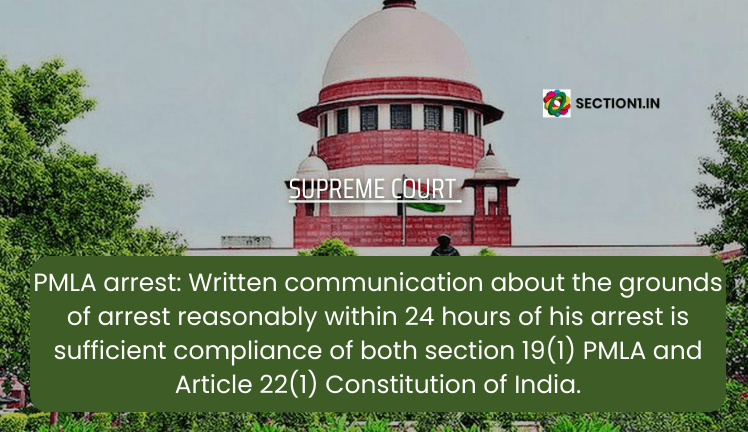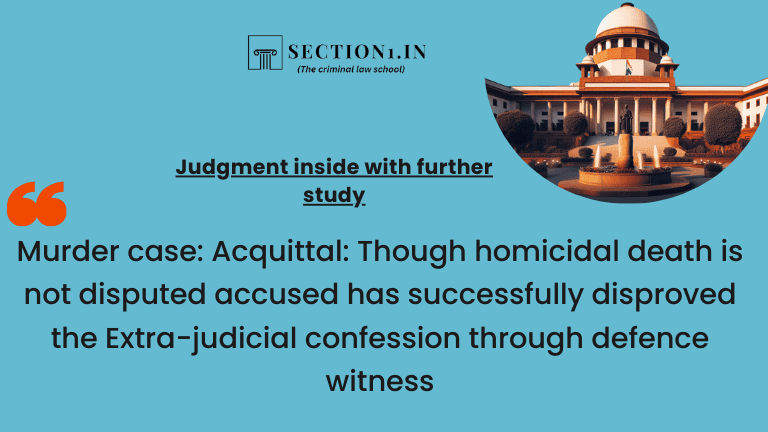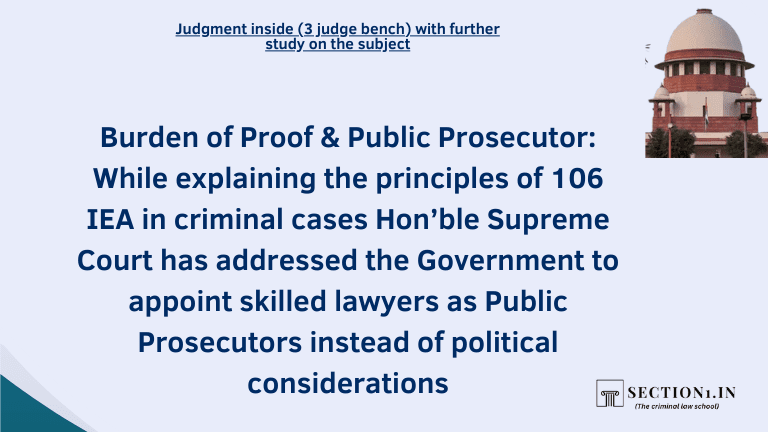Present appeal
2. The present appeal is directed against the judgment and order dated 22.09.2023 passed by the High Court of Delhi at New Delhi, in Writ Petition (Crl.) No. 2408/2023, whereby the High Court has dismissed the said petition seeking declaration that the arrest of the appellant on 27.06.2023 by the respondent Directorate of Enforcement (hereinafter referred to as the ED) was illegal and violative of the fundamental rights 2 guaranteed to the appellant under Articles 14, 20 and 21 of the Constitution of India, and seeking direction to release the appellant forthwith. The appellant had also sought direction to quash the order of remand dated 28.06.2023 passed by the ASJ/05, PMLA, Patiala House Courts, New Delhi (hereinafter referred to as the “Special Court”), in ECIR No. STF/21/2021.
Question of law
3. Dehors the facts, a neat question of law that has been raised before this Court is, whether the action of the respondent ED in handing over the document containing the grounds of the arrest to arrestee and taking it back after obtaining the endorsement and his signature thereon, as a token of he having read the same, and in not furnishing a copy thereof to the arrestee at the time of arrest would render the arrest illegal under Section 19 of the Prevention of Money Laundering Act, 2002 (hereinafter referred to as PMLA)?
Factual Matrix
Legal provision
7. Since the entire controversy centres around the interpretation of Section 19 of PMLA which deals with the Power of the ED to arrest, the same is reproduced for ready reference.
(1) If the Director, Deputy Director, Assistant Director or any other officer authorised in this behalf by the Central Government by general or special order, has on the basis of material in his possession, reason to believe (the reason for such belief to be recorded in writing) that any person has been guilty of an offence punishable under this Act, he may arrest such person and shall, as soon as may be, inform him of the grounds for such arrest.
(2) The Director, Deputy Director, Assistant Director or any other officer shall, immediately after arrest of such person under sub-section (1), forward a copy of the order along with the material in his possession, referred to in that sub-section, to the Adjudicating Authority in a sealed envelope, in the manner, as may be prescribed and such Adjudicating Authority shall keep such order and material for such period, as may be prescribed.
(3) Every person arrested under sub-section (1) shall, within twenty-four hours, be taken to a 1 [Special Court or] Judicial Magistrate or a Metropolitan Magistrate, as the case may be, having jurisdiction: Provided that the period of twenty-four hours shall exclude the time necessary for the journey from the place of arrest to the 1 [Special Court or] Magistrate’s Court.”
Analysis
10. The validity of the various provisions including Section 19 of the PMLA was examined by the Three-Judge Bench in Vijay Madanlal Choudhary case (Vijay Madanlal Choudhary and Others vs. Union of India and Others – (2022) SCC Online SC 929) in which the Bench while upholding the validity of Section 19 of the PMLA held that the said provision has reasonable nexus with the purposes and objects sought to be achieved by the PMLA.
13. In Pankaj Bansal case (Pankaj Bansal vs. Union of India and Others – (2023) SCC Online SC 1244), the two-Judge Bench after analyzing the provisions contained in Section 19(1) of PMLA observed as under:-
“39. On the above analysis, to give true meaning and purpose to the constitutional and the statutory mandate of Section 19(1) of the Act of 2002 of informing the arrested person of the grounds of arrest, we hold that it would be necessary, henceforth, that a copy of such written grounds of arrest is furnished to the arrested person as a matter of course and without exception. The decisions of the Delhi High Court in Moin Akhtar Qureshi (supra) and the Bombay High Court in Chhagan Chandrakant Bhujbal (supra), which hold to the contrary, do not lay down the correct law.…”
Binding precedents
14. It hardly needs to be emphasized that as well settled, it is in order to guard against the possibility of inconsistent decisions on the points of law by different Division Benches that the Rule of precedent has been evolved. It is in order to promote the consistency and certainty in the development of law and its contemporary status that the statement of law by a Division Bench is considered binding on a Division Bench of the same or lesser number of Judges.
Vijay Madanlal Choudhary and Others vs. Union of India and Others holds the field
17. In view of the afore-stated proposition of law propounded by the Constitution Benches, there remains no shadow of doubt that the law laid down by the Three-Judge bench in Vijay Madanlal Choudhary case (supra) that Section 19(1) of the PMLA has a reasonable nexus with the purposes and objects sought to be achieved by the PML Act and that the said provision is also compliant with the mandate of Article 21(1) of the Constitution of India, any observation made or any finding recorded by the Division Bench of lesser number of Judges contrary to the said ratio laid down in Vijay Madanlal Choudhary (supra) would be not in consonance with the jurisprudential wisdom expounded by the Constitution Benches in cases referred above. The Three-Judge Bench 22 in Vijay Madanlal Choudhary case (supra) having already examined in detail the constitutional validity of Section 19 of PMLA on the touchstone of Article 22(1) and upheld the same, it holds the field as on the date.
It is necessary copy of written grounds of arrest should furnish to the arrested person as a matter of course without exception
18. It is true that the expression “as soon as may be” has not been specifically explained in Vijay Madanlal Choudhary (supra). Even the said expression has not been interpreted in either V. Senthil Balaji or in Pankaj Bansal case. In V. Senthil Balaji, it is held inter alia that after forming a reason to believe that the person has been guilty of an offence punishable under the PMLA, the concerned officer is at liberty to arrest him, while performing his mandatory duty of recording the reasons, and that the said exercise has to be followed by way of an information being served on the arrestee of the grounds of arrest. In Pankaj Bansal case also the court after highlighting the inconsistent practice being followed by the respondent-ED about the mode of informing the person arrested, held that it would be necessary henceforth, that a copy of such written grounds of arrest is furnished to the arrested person as a matter of course and without exception.
‘As soon as may be’ means ‘as early possible’ to forward the copy to the adjudicating authority
21. In view of the above, the expression “as soon as may be” contained in Section 19 of PMLA is required to be construed as- “as early as possible without avoidable delay” or “within reasonably convenient” or “reasonably requisite” period of time. Since by way of safeguard a duty is cast upon the concerned officer to forward a copy of the order along with the material in his possession to the Adjudicating Authority immediately after the arrest of the person, and to take the person arrested to the concerned court within 24 hours of the arrest, in our opinion, the reasonably convenient or reasonably requisite time to inform the arrestee about the grounds of his arrest would be twenty-four hours of the arrest.
Written communication about the grounds of arrest reasonably within 24 hours of his arrest is sufficient compliance of both section 19(1) PMLA and Article 22(1) Constitution of India.
22. In Vijay Madanlal Choudhary (supra), it has been categorically held that so long as the person has been informed about the grounds of his arrest, that is sufficient compliance of mandate of Article 22(1) of the Constitution. It is also observed that the arrested person before being produced before the Special Court within twenty-four hours or for that purposes of remand on each occasion, the Court is free to look into the relevant records made available by the Authority about the involvement 26 of the arrested person in the offence of money-laundering. Therefore, in our opinion the person asserted, if he is informed or made aware orally about the grounds of arrest at the time of his arrest and is furnished a written communication about the grounds of arrest as soon as may be i.e as early as possible and within reasonably convenient and requisite time of twenty-four hours of his arrest, that would be sufficient compliance of not only Section 19 of PMLA but also of Article 22(1) of the Constitution of India.
23. As discernible from the judgment in Pankaj Bansal Case also noticing the inconsistent practice being followed by the officers arresting the persons under Section 19 of PMLA, directed to furnish the grounds of arrest in writing as a matter of course, “henceforth”, meaning thereby from the date of the pronouncement of the judgment. The very use of the word “henceforth” implied that the said requirement of furnishing grounds of arrest in writing to the arrested person as soon as after his arrest was not the mandatory or obligatory till the date of the said judgment. The submission of the learned Senior Counsel Mr. Singhvi for the Appellant that the said judgment was required to be given effect retrospectively cannot be accepted when the judgment itself states that it would be necessary “henceforth” that a copy of such written grounds 27 of arrest is furnished to the arrested person as a matter of course and without exception. Hence non furnishing of grounds of arrest in writing till the date of pronouncement of judgment in Pankaj Bansal case could neither be held to be illegal nor the action of the concerned officer in not furnishing the same in writing could be faulted with. As such, the action of informing the person arrested about the grounds of his arrest is a sufficient compliance of Section 19 of PMLA as also Article 22(1) of the Constitution of India, as held in Vijay Madanlal (supra).
Apply the legal position in the present case: Arrested person signed in the grounds is enough compliance
24. In so far as the facts of the present case are concerned, it is not disputed that the appellant was handed over the document containing grounds of arrest when he was arrested, and he also put his signature below the said grounds of arrest, after making an endorsement that “I have been informed and have also read the above-mentioned grounds of arrest.” The appellant in the rejoinder filed by him has neither disputed the said endorsement nor his signature below the said endorsement. The only contention raised by the learned Senior Counsel, Mr. Singhvi is that he was not furnished a copy of the document containing the grounds of arrest at the time of arrest. Since the appellant was indisputably informed about the grounds of arrest and he having also put his signature and the endorsement on the said document of having been 28 informed, we hold that there was due compliance of the provisions contained in Section 19 of PMLA and his arrest could neither be said to be violative of the said provision nor of Article 22(1) of the Constitution of India.
RAM KISHOR ARORA …APPELLANT(S) VERSUS DIRECTORATE OF ENFORCEMENT …RESPONDENT(S) – CRIMINAL APPEAL NO. 3865 OF 2023 (@ SLP (Crl.) No. 12863 of 2023) – 2023 INSC 1082
https://main.sci.gov.in/supremecourt/2023/40323/40323_2023_15_1501_49103_Judgement_15-Dec-2023.pdf
Ram Kishor Arora vs. Directorate of Enforcement – PMLA arrest ground
Further study
PMLA – All the offences under the PMLA are cognizable and non-bailable
Arrest is prerogative of police and not mandatory even after dismissal of anticipatory bail
PMLA: It is not necessary bail should be granted because the accused is woman






